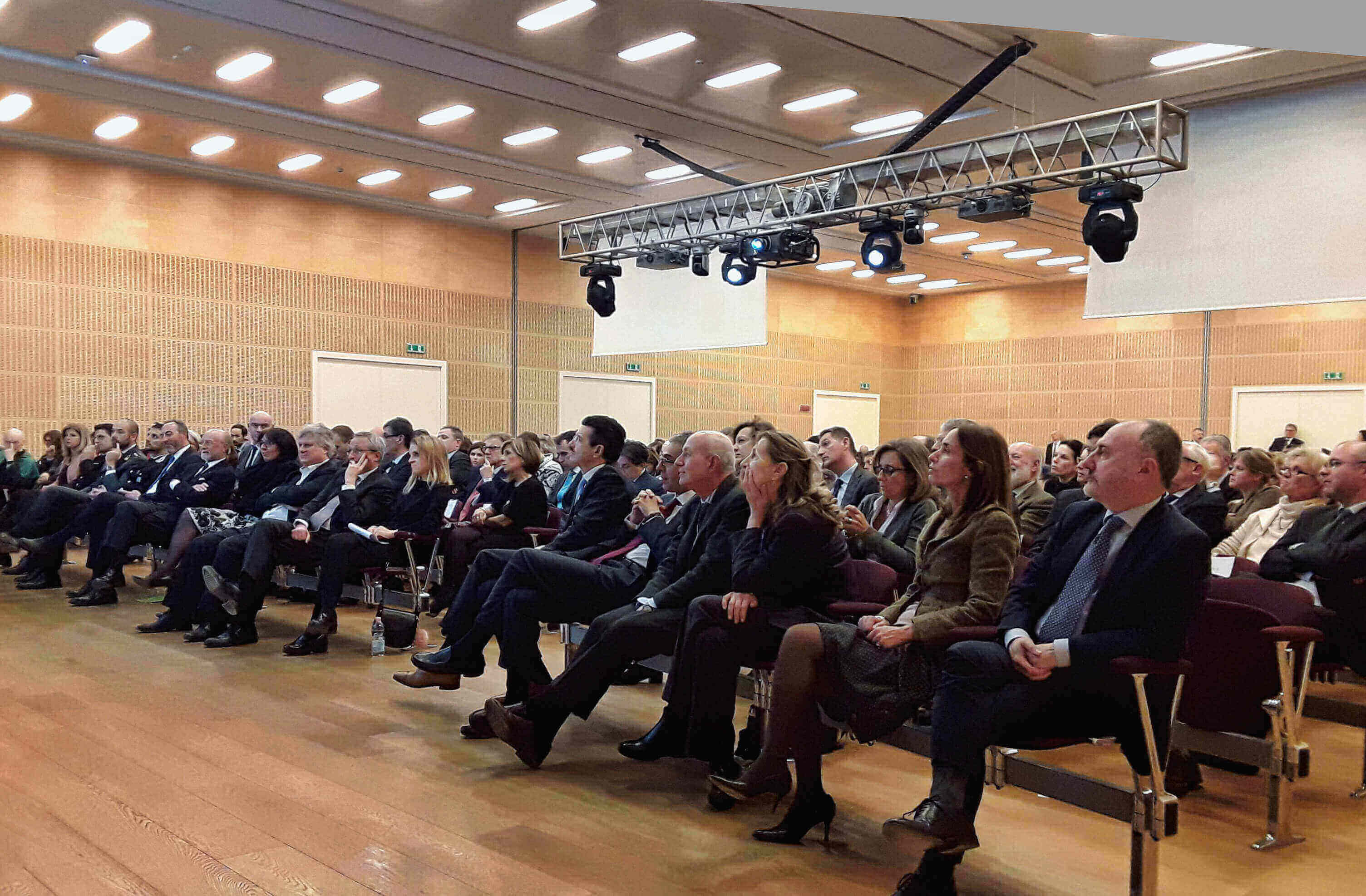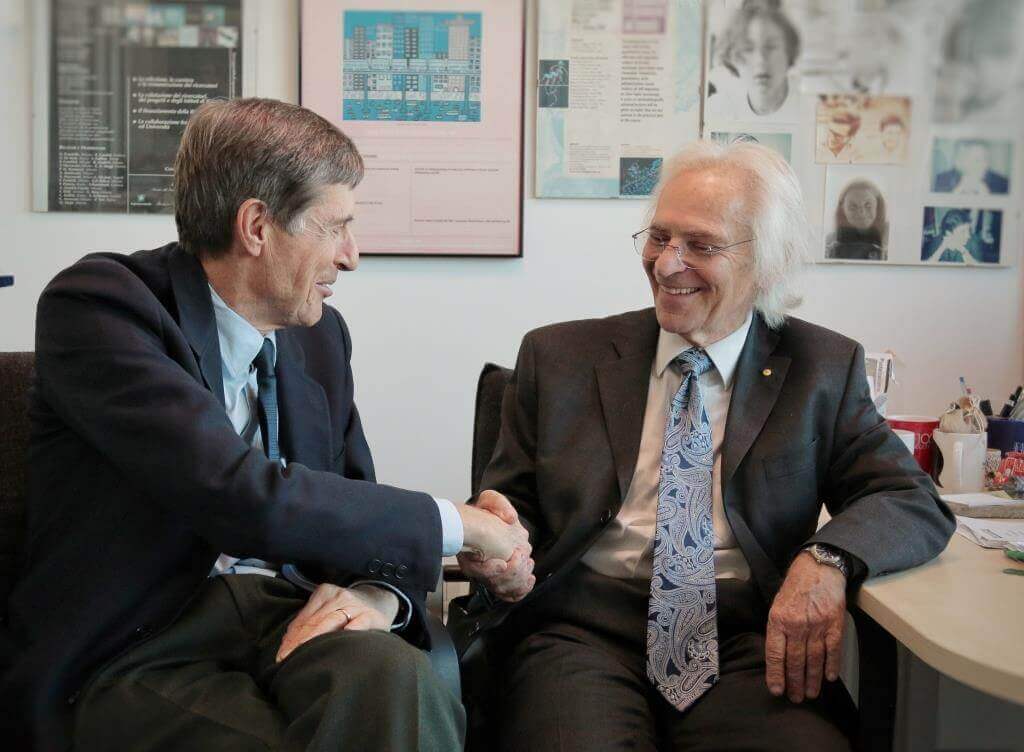Academic Year 2016-17 officially open. Marc Feldmann guest of honor at the Opening Ceremony
Today, January 24th, the Opening Ceremony of the Academic Year 2016-17 of Humanitas University has taken place. The ceremony initiates the university’s third year of activity, with 700 students from around the world.

This important milestone was made even more special by the keynote of Sir Feldmann, Emeritus Professor at the Kennedy Institute of Rheumatology, University of Oxford, whose research has pioneered the use of targeted strategies for the treatment of autoimmune and inflammatory diseases such as rheumatoid arthritis.
The inauguration of the academic year has taken place in the presence of the Welfare Assessor of Lombardy Region, Mr. Giulio Gallera, Ms. Barbara Agogliati (Major of Rozzano) and Mr. Paul Festa (Major of Pieve Emanuele). President of Humanitas Gianfelice Rocca has opened the ceremony.
The Rector: education and research more and more international
“The outcome of our first three years of life is very positive – said Marco Montorsi, Rector of Humanitas University. To date, we have increased the number of students, opened new degree programs and medical specialty schools. In line with the international spirit of our University and our position as a prominent Research Institute, our faculty has not only gained significant experiences abroad, but besides clinical activity distinguishes itself for a high scientific production. Adding important value to the education of our students. ”
Marc Feldmann’s lecture
The guest of honor at the ceremony of inauguration was Sir Marc Feldmann, whose research on the immune system and the role of cytokines in inflammatory disorders has opened new research perspectives and changed the treatment of certain diseases, such as rheumatoid arthritis. “Research in this area is critical because it has led to a change of paradigm in medicine. Diseases are not only caused by infectious agents, but also by the incorrect dialogue between cells of the immune system – explains Alberto Mantovani, Vice Rector and professor at Humanitas University. – Currently, progress has been made primarily in the treatment of the symptoms of these diseases but not in understanding their origins. Finding their origins will allow us to intervene before the symptoms initially arise, therefore, it is very important to continue researching in this field of study.”

